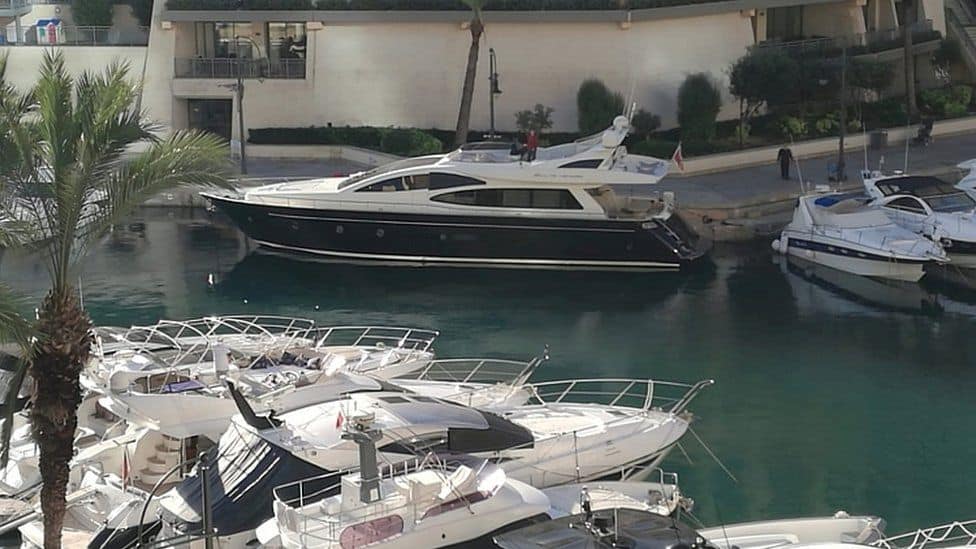
Through all the contradictions, the lame excuses, the artificial smoke, and the hollow categorical declarations, we learnt some new things from Keith Schembri’s testimony yesterday.
The night before Yorgen Fenech tried to make a run for it on his plush yacht, Keith Schembri says he spent 24 minutes on the phone with him trying to talk him out of leaving. He said he told him not to draw too much attention on himself by running away. But, apparently, he was trying not to tip him off that he would be arrested if he tried.
We also hear that Keith Schembri was acting on Joseph Muscat’s instructions.
This is weird in so many ways. As Keith Schembri – reluctantly – explained, the security services told the prime minister they thought Yorgen Fenech would run away from the country. Why? How is this reasonable procedure when the police suspect someone they have their eyes on is going to escape the country? Why didn’t they just fall on him without the prime minister’s help? Or why didn’t they lie in wait for him at the mouth of Portomaso harbour to grab him as he left? Oh, wait a minute. They did that. So why call the prime minister?
And why does the prime minister arrange for the fugitive to be given PR advice about how things could look if he ran away? Whom does this help? Is it in any way useful to the unhindered course of justice?
Does not seem that way.
Of course we’ll only have Keith Schembri’s version of what was said on that phone call for a while. We might, if circumstances change, also hear Yorgen Fenech’s version which is likely to be very different.
But we are all experiencing the dilemma of jurors. We hear multiple versions of the truth that are in reality all deviations from reality, varying degrees of severity of lies. If you’re as dull as I am and would be happy to have a fight with the rest of your family to put on TV a Japanese movie from the 1950s, you’ll get the reference to Rashomon. If you don’t know what that means, you could do worse than looking the movie up.
We have facts.
There was a late night phone conversation that lasted 24 minutes between Keith Schembri and Yorgen Fenech. A little bit of time later Yorgen Fenech left Portomaso Harbour on his yacht. A little bit after that Yorgen Fenech was arrested. Ten days later he was charged with murder.
And here’s another set of facts for you. When Yorgen Fenech was arrested he said Keith Schembri was the real big fish in the conspiracy to assassinate Daphne Caruana Galizia. When Keith Schembri was arrested he was asked for his phone. Keith Schembri said he’d lost it.
There are the facts.
And then there’s Keith Schembri’s story of what was said on that 24-minute phone call. What he said cannot be verified and cannot be backed up. And more importantly perhaps it can hardly be believed.
It would be easier to understand that Joseph Muscat understood that Yorgen Fenech was about to be arrested. A friendly and loyalist source in the police informed him of this because that source understood that Yorgen Fenech’s arrest would precipitate the political fall of Joseph Muscat. Maybe worse.
Joseph Muscat needed to persuade Yorgen Fenech to get the hell out of Dodge and he, probably rightly, assumed that Keith Schembri’s conspiratorial relationship with Yorgen Fenech would be the best way to arrange for that.
Keith Schembri called a partially oblivious Yorgen Fenech and got him to understand a scenario that he was underestimating. This was it. If he was arrested, it would be the end of days.
Unless Yorgen Fenech got out on time. After that Keith Schembri would not be able to help him anymore.
Yorgen Fenech did not get out on time.
Every step up we go in this conspiracy, points us to one step higher. Il-Koħħu, the veritable bottom of the criminal food chain, pointed to Melvyn Theuma. Melvyn Theuma pointed to Yorgen Fenech. Yorgen Fenech said Keith Schembri put him up to it.
And now, for the first time, we heard Keith Schembri speak. And who does he bring into his story? Joseph Muscat.
Now that’s something to chew upon.